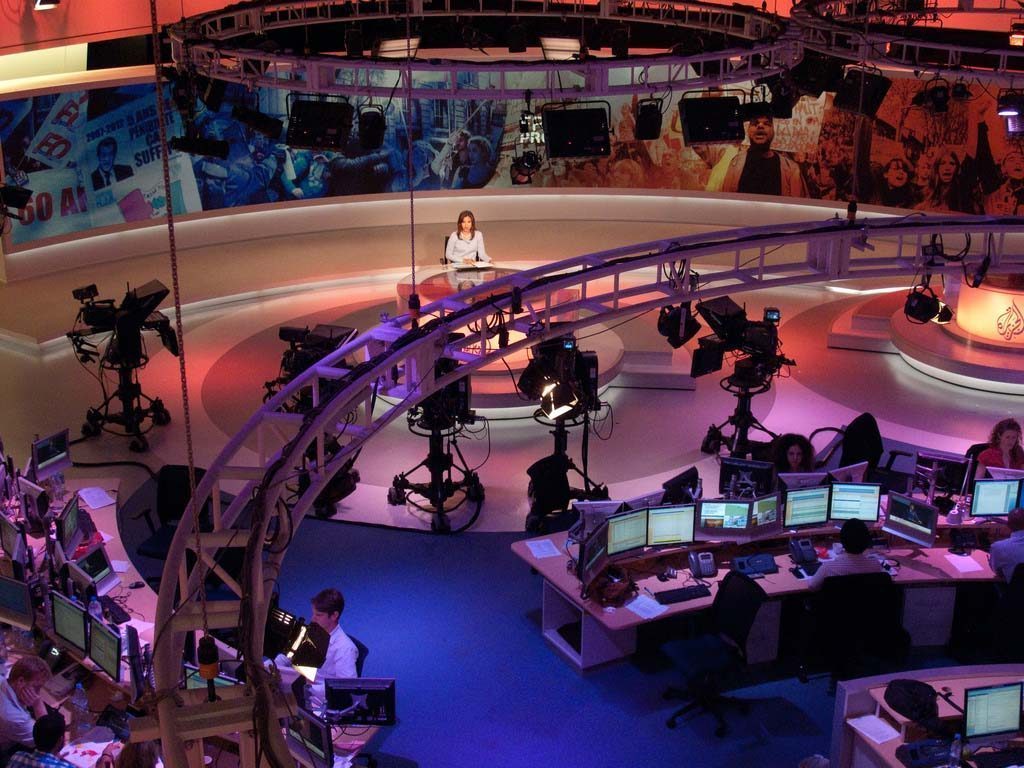
The Qatar-based Al Jazeera Media Network has announced the suspension of its Egypt-focused channel, Al Jazeera Mubasher Misr (AJMM).
The channel had been operating out of Doha for the past year and a half, after its offices were closed in Cairo in July 2013, following the ousting of President Mohamed Morsi.

Morsi’s political party, the Muslim Brotherhood, had close ties with Qatar, a relationship that apparently wrought months of diplomatic havoc between the Gulf state and its neighbors.
Saudi Arabia, the UAE and Bahrain in particular see the Brotherhood as a threat to their governments’ sovereignty.
AJMM has been a big sticking point between Doha and Cairo. Previously, the new military-backed government in Egypt accused Al Jazeera and by extension its funder Qatar of serving as the Brotherhood’s proxy by airing the group’s views.
For its part, Al Jazeera said it has always strived to present all angles of a story or conflict.
Mending ties
Now, as Qatar and Egypt work to mend political and diplomatic ties, Al Jazeera said it has ceased broadcasting its Egyptian channel out of Doha as it waits to secure the necessary permits to restart in Cairo.
However, at the same time, the network added that it plans to launch a new Arabic-language TV service that combines Al Jazeera Mubasher and Al Jazeera Mubasher Misr into one – Al Jazeera Mubasher Al-‘Amma (general).
The closure of AJMM comes as little surprise to many who were closely following the Qatar-Egypt saga, Michael Stephens, deputy director of British thinktank Royal United Services Institute (RUSI) Qatar, told Doha News.
He continued:
“It’s a shame because the channel was good at uncovering daily life in Egypt in a way that many others simply were unable to do, however the politics of Al Jazeera’s coverage was clearly one sided.
As such it was only a matter of time before the channel got cut, and it shouldn’t come as a surprise to anybody that this has happened. It is the first step toward thawing relations between the two countries, and for Qatar to show it is willing to compromise on issues that the UAE and Saudi Arabia view as critically important to regional security.”
The network’s decision comes days after Egypt’s new President Abdel Fattah al-Sisi met with a special envoy representing Qatar’s Emir, as part of a Saudi-backed effort to ease tensions.

In some circles, the closure of AJMM has raised hopes that Egypt will look more favorably on three Al Jazeera journalists jailed there for broadcasting false news and aiding a “terrorist organization” (the Brotherhood).
They face seven- to 10-year sentences – jail terms that have been condemned worldwide under the hashtag #journalismisnotacrime.
On Dec. 29, Australian correspondent Peter Greste, Canadian-Egyptian Bureau Chief Mohamed Fahmy and Egyptian producer Baher Mohamed will mark the one-year anniversary of their detention in Egypt.
They have been granted an appeal in January, but Al-Sisi has recently said that he is considering pardoning the three men.
Jamming signals
Meanwhile, Al Jazeera also announced yesterday that it was moving its satellite broadcasting from Arabsat to Qatar’s own Es’hailsat, to prevent incidents of signal jamming.

Previously, Al Jazeera has accused Egypt of blocking its Mubasher Misr broadcasts following the ousting of Morsi.
In a statement, Ibrahim Nassar, Manager of RF & Teleport Engineering at Al Jazeera, said the move to Es’hailsat was in response to deliberate jamming in the wake of the network’s coverage of various Arab uprisings, but he did not specify by whom.
He continued:
“Al Jazeera has carefully investigated and considered the intentional jamming of its signal in recent years. The jamming is part of an orchestrated and multifaceted campaign to block the network’s signal and internet websites from its viewers”.
The switch will take place on Jan. 1, 2015. To keep watching Al Jazeera’s channels, viewers should set the receiver to Es’hailSat 1. More information about the process can be found here.
Though Al Jazeera will cease broadcasting on ArabSat, it will continue to air programming on Egypt’s NileSat.
Thoughts?







